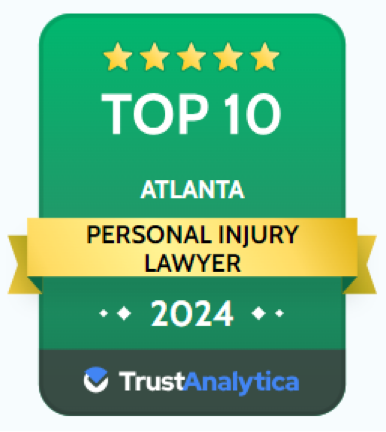All information provided about the law is very general in nature and should not be relied upon as legal advice. Every situation is different and should be analyzed by a lawyer who can provide individualized advice based on the facts involved in your unique situation, and a consideration of all of the nuances of the statutes and case law that apply at the time.
Can You Claim an Accident Without a Police Report?
The aftermath of a car accident can be chaotic regardless of whether it’s a fender-bender or a serious wreck. For many, getting police on the scene is reflexive, but what if you don’t call the police? Or what if the police don’t arrive? Can you claim an accident without a police report?
You can still file an insurance claim without a police report. However, filing your claim with a police accident report can help make the process smoother and increase the likelihood of a successful claim.
So why obtain a police report? To understand why and how a police report helps, it’s worth diving into what a police report includes and when it’s required. It also helps to know what alternatives exist to a police report before diving into how a police report can help your claim.
What’s Inside a Police Accident Report?
A Police Accident Report is a form that police fill out when they arrive at a motor vehicle crash scene. The report attempts to provide an objective perspective of the accident, who may be at fault, and what laws, if any, were violated. As a result, the police report is one of the first opportunities to establish what happened in the accident.
When piecing together their report, police speak to all parties involved in the accident and any eyewitnesses at the scene. The officer then compiles those statements, along with the officer’s own observations, into a single form. In Georgia, this is known as form DOT-523.
The report includes information about the road and intersection where the accident occurred and the road conditions at the time. The officer will record the names and information of the drivers, occupants, and vehicle owners and who they suspect was at fault.
The accident report also gives space for the officer to record the first harmful event, what driver factors might have contributed to the accident, whether the vehicle’s condition may have contributed to the accident, or if a particular maneuver played a role. Finally, the report provides space for the officer to draw a diagram of the accident scene.
If the officer can record all this information in their report, it provides a written “snapshot” of the accident scene. Drivers, eyewitnesses, lawyers, and all other interested parties can refer to it as needed. In Georgia, for example, people involved in an accident can request a police report by contacting the local State Patrol post or police department that filed the report and paying a small fee.
Georgia’s Accident Reporting Requirements
Law enforcement officers file hundreds of thousands of police reports in Georgia each year because state law requires drivers to contact police after many accidents. In Georgia, O.C.G.A. § 40-6-273 requires drivers to stop and call the police immediately whenever an accident results in injuries, death, or apparent property damage of $500.00 or more.
Additionally, Georgia’s hit-and-run law, O.C.G.A. § 40-6-270 requires that drivers provide their name, address, and registration number of their vehicle to the other drivers. It also requires drivers to assist injured persons as much as reasonable, including arranging for transportation to a physician, surgeon, or hospital. This requirement applies when the need for care is apparent or when an injured person requests this assistance.
When the police arrive, they will instruct each driver to report their name and address, the license number of the vehicle, and the name of their auto insurance provider. If the vehicle owner is different from the driver, they will also request that each driver share the name and address of the owner of the vehicle, if known.
Georgia also requires that drivers who hit parked cars or other property make all possible attempts to track down the vehicle or property owner and provide their information. If a driver cannot immediately find the owner of a parked or unattended vehicle, O.C.G.A. § 40-6-271 requires that they place written notice of the accident in a conspicuous location on the car. This notice must include at least the name and address of the driver and owner of the vehicle that hit the parked car.
When a Police Report Isn’t Required
Under Georgia law, there is a limited exception to the immediate police notification requirement. O.C.G.A. § 40-6-274 provides that drivers do not need to notify police when an auto accident involves one vehicle, no property of a second party, and no injuries.
While this does provide an exception to notifying the police of an accident, keep in mind that it is a limited exception. According to recent GDOT Crash Data, injuries occur in over a quarter of reported accidents, meaning that an injury often triggers a police report. Meanwhile, the Insurance Information Institute’s most recent data indicates that the average collision claim was $5,470.00. It’s rare then, for a collision to result in damages less than $500, so most crashes will require a police report.
Also, not all injuries are apparent at the time of the accident. So while you may leave the scene of the accident thinking that everyone is fine, another person involved in the accident may need to seek treatment for injuries they didn’t realize occurred as a result of the accident. A failure to report could lead to complications and questions of whether the driver complied with all the requirements of O.C.G.A. § 40-6-270.
Mandatory Reporting Across the Southeast
What if the accident occurs just across state lines? Georgia borders multiple states and drivers sometimes cross state lines during routine activities. Understanding what each state expects can prevent problems with insurance companies and local law enforcement.
Florida
Florida requires similar actions from drivers involved in car accidents. According to Florida Statute 316.062, drivers must give their name, address, and vehicle registration number to others involved in the crash. This duty applies if the crash results in injury, death, or damage to a vehicle or property. The drivers must also show their license or permit if the other drivers request that information.
Florida has similar provisions to Georgia regarding when drivers must notify police. Florida Statute 316.065 requires that drivers immediately notify police of an accident that results in injury, death, or property damage that appears to amount to $500 or more.
Florida also requires drivers to call the police and ensure that injured parties are transported to the hospital. This duty applies if it becomes apparent that a person needs medical attention or if they request assistance.
Alabama
Alabama has looser requirements than Florida and Georgia. Alabama Code Section 32-10-5 requires drivers to notify the police when they are involved in an accident which results in injury or death of any person. If there’s only damage to the vehicles, there’s no requirement to contact police.
However, like Florida, Alabama requires drivers to secure transportation to a physician or hospital for an injured person when the need for treatment is apparent or the injured person requests assistance. Alabama Code Section 32-10-2 also requires drivers to share their name, address, registration number, and, if requested, their license with the other drivers or occupants involved in the accident.
Tennessee
Can you make an insurance claim without a police report in Tennessee? Like many other states, you are still able to. However, Tennessee does have some of the most strict reporting requirements of any of the above states. Tenn. Code Ann. § 55-10-106 requires drivers to immediately notify the police in the event an accident causes injury, death, or apparent property damage of $50 or more.
Tennessee also requires drivers to exchange information, including name, address, registration, and license upon request. Tenn. Code Ann. § 55-10-103 also requires drivers to assist in transporting injured persons to the hospital, surgeon, or a physician if it’s apparent they need treatment or if they request assistance.
Further, Tennessee law spells out that these requirements apply beyond public roads and highways. Tenn. Code Ann. § 55-10-103 indicates that the duty to report applies to accidents that occur at shopping centers, trailer parks, apartment complexes, or any other premises where the public generally frequents.
Can You File a Police Report After an Accident in Georgia
If you’re unable to notify the police of an accident for whatever reason, there are other ways to document and record the accident. The best alternative to a police report is a report filed to the police. In the event that the police are unable to come out to your accident or you aren’t able to contact them, you can still file a report by going to the nearest police station after the fact.
You can use DOT Form 523 as a template to help you record all the relevant facts and details that you would want included in your report to the police. At a minimum, make sure to include the time, date, and location of the accident in addition to details relating to the damage of all vehicles involved. If you were able to get the information of other drivers involved in the accident, include that information in your report. That includes their names, addresses, license and registration, and insurance information.
You may also want to include road conditions in the report along with any road signs near the accident location, like speed limits, stop or yield signs, etc. You can also take photos and record videos of the scene of the accident and include those in your report to the police.
While submitting your report to the police is better than no report, insurers may not hold it in as high regard as a police report. Your report represents your recollection of events, rather than an officer’s observations. Insurers may also suspect that your report downplays any potential fault you may have.
How A Police Report Helps
Even when a police report isn’t required, it helps to have one. A police report can help protect yourself from liability after an accident, in addition to backing up affirmative claims. A police report can also help when filing an insurance claim and any potential lawsuit that may stem from the accident.
Protecting Yourself
Obtaining a police report can establish critical facts and prevent attempts from others to take advantage of you or your insurance. It may be more difficult for someone to claim that you were the cause of their injuries if the police report indicates they were feeling perfectly fine. It will also make it much harder for them to dispute the damages to their vehicle, as the report will indicate where and how badly the car was damaged.
The police report also clearly indicates when and where the accident occurred. This date starts the limitations period for any potential lawsuits, giving both you and potential other claimants a clearer understanding of how long you have to file a suit. In Georgia, O.C.G.A. § 9-3-33 establishes a two year limitation period for personal injuries, like those that result from car accidents. Courts generally will not uphold a suit filed after this two-year period, however, there are limited exceptions to this rule.
Smoother Claims Processing
One of the clearest ways a police report can help your claims process is by establishing that the accident you said occurred, actually occurred. Insurance companies may not have the resources to send a claims adjuster out to your vehicle after the accident let alone send one to the actual accident scene.
The police report, therefore, functions like their eyes and ears on the ground, substantiating your claim without the need for an adjuster’s presence. The police report alerts the insurance company that you were in an accident, what may have caused the accident, if a driver broke any laws, and who may be at fault. That level of detail is invaluable information for you and your insurance company. It can save the insurer time and resources trying to track down and verify all the information you provided in your claim.
Aiding in Potential Lawsuits
If an accident leads to a lawsuit, the police report provides a resource for auto accident attorneys and potential judges or jurors. The police report will be one of the first resources your attorney reviews as they attempt to recreate the scene and determine the best course of legal action. It will key your attorney into any relevant legal issues and potential instances of negligence per se, such as a distracted or impaired driver.
Should the lawsuit proceed to trial, attorneys cannot use the police report as evidence. However, a skilled accident attorney can still use the report. Rather than viewing the report as evidence, the attorney can use the report as credible witness testimony of the accident. While the police officer that filed the report usually wasn’t an eyewitness to the accident, their report compiles all the eyewitness testimony into one account.
Further, juries generally view the police report as not only a credible account, but an objective one. The officer doesn’t represent one side or the other so their report typically reflects an impartial review of the facts. Rather than a one-sided account that refuses guilt or accountability, the report considers all the available facts to determine who was likely at fault, if anyone. Potential jurors will lend weight to the police report and rely on it to reach their verdict. So, can you file an insurance claim without a police report? Yes, in most instances but it really helps to have one.
No Police Report? Call Montlick.
If, for whatever reason, you are unable to get a police report following an accident, don’t despair. Your pursuit of justice does not rest entirely on a police report. If you’re wondering, “can you make a car insurance claim without a police report?” Call Montlick. With Montlick’s determined advocacy in our client’s corner, let us help you.
Investigating Our Client’s Claim
Our firm has over 40 years of experience representing clients injured in car accidents. We understand the details of these accidents, including their causes and the damages that result. If our client doesn’t have a police report, we can deploy our firm’s resources to recreate the scene.
We can start with any evidence our client may have of the accident, including photos, videos, and documentation of the damage from repair shops. We can also use medical records and track down eyewitness testimony to build an accurate replication of the accident. We can also track down and obtain other potential sources of evidence from security cameras or traffic cameras located near the scene of the accident.
While the police report can give our attorneys a head start, they won’t build their client’s case entirely around it. Don’t let the absence of a police report put fair compensation out of reach.
We Know What it Takes to Win®
Car accidents take a serious toll on drivers, passengers, and entire households. In some cases, the accident’s severity may make filing an immediate police report impossible. At Montlick, we don’t believe this should be an absolute bar to you or your family’s recovery. That’s why we bring our 40 years of experience and wealth of resources to bear for our clients. We pursue every avenue to demand our clients get fair compensation.
Contact Montlick today to see how we can make a difference. Your initial consultation is free.
How useful is this for you?
Would you like to speak with an attorney?
Call NowRelated Questions
- How Long Can Your License Be Suspended in Georgia?
- Can a Decatur, GA car accident attorney negotiate with my insurance company for me?
- What if I carry some of the blame for my car accident in Georgia?
- How long do I have to file an injury claim after a car accident in Georgia?
- What is the Average Car Accident Settlement Amount?
We Win More than Settlements.
We win the peace-of-mind you need to get your life back.
At Montlick, we believe comprehensive legal representation is a right, not a privilege. That’s why we provide our services on a contingency fee basis. You only pay when we win.








